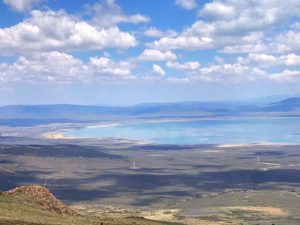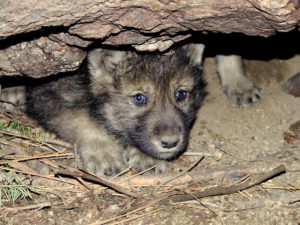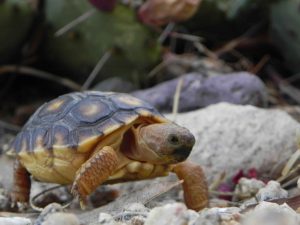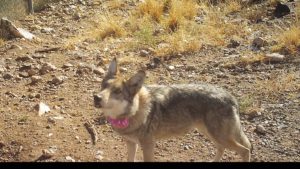Contact:
Paul Ruprecht, Nevada-Oregon Director, Western Watersheds Project, (208) 421-4637
Erik Molvar, Executive Director, Western Watersheds Project, (307) 399-7910
Scott Lake, Idaho Director, Western Watersheds Project, (208) 429-1679
WASHINGTON, D.C. – The Department of Interior today took advantage of the chaos surrounding the COVID-19 pandemic and announced broad and controversial fuelbreaks projects across the Interior West. The agency released a final decision on the Great Basin Fuel Breaks Project, covering five states in the Great Basin and Columbia Basin, and its final analysis for the Tri-State Fuel Breaks Project, focusing primarily on Idaho and southeastern Oregon. A third project, a draft Fuels Reduction Environmental Impact Statement focuses on “fuels reduction and rangeland restoration,” in the same geographic region and will be released tomorrow. The three projects are in addition to a rulemaking currently underway that would exempt pinyon-juniper destruction projects of up to 10,000 acres from full environmental analysis, accelerating project approval and limiting public input.
Conservationists blasted the multiple plans as being pointless and counterproductive noting that the projects will further fragment important sagebrush habitat and exacerbate invasive weed problems in the Sagebrush Sea.
“This massive fuelbreak program, paired with eliminating pinyon-juniper woodlands and targeted overgrazing projects, is a boondoggle designed to benefit the livestock industry,” said Paul Ruprecht, Nevada Director with Western Watersheds Project. “Planting invasive weeds like forage kochia and crested wheatgrass, targeting public lands for heavy livestock grazing, and getting rid of pinyon-juniper woodlands, are projects designed to maximize livestock forage while degrading and destroying natural wildlife habitats.”
In 2018, the federal government published a comprehensive review of the fire science on fuelbreaks throughout the West. Based on decades of fuelbreak construction and real-world performance under fire conditions, the researchers concluded that there was no solid evidence that fuelbreaks reduce the extent or severity of rangeland fires.
“This massive fuelbreaks program is a make-work project. Fuelbreaks pose no barrier to fire spread during high winds or extreme drought,” said Scott Lake, Idaho Director for Western Watersheds Project and a former wildlands firefighter. “We’ve seen fires jump interstate highways and even the Columbia River, so no fuelbreak will prevent fire spread by itself. Fuelbreaks are only helpful when they’re actively defended by firefighters, and the results depend on wind direction and fire behavior. If BLM is serious about controlling wildland fires, the best way to accomplish this is to increase the number of fire crews and improve agency responsiveness.”
Federal agencies recently published a second report (available upon request) examining the impacts of fuelbreaks on wildlife habitats. It found that fuelbreaks accelerate the invasion of non-native cheatgrass, a Eurasian weed commonly recognized as a major factor in large fires in the West’s sagebrush basins, and that fuelbreaks fragment and degrade sage-grouse habitats, leading to further declines of the imperiled species. The most recent studies show that sage-grouse populations are down 61 percent in Utah, 33 percent in Nevada, 52 percent in Idaho, and 43 percent in Oregon since the 2015 West-wide sage grouse plans went into effect.
“These fuelbreak projects will create massive widespread fragmentation of sage grouse habitats, and could be a major nail in the coffin for declining sage-grouse populations,” said Erik Molvar, Executive Director with Western Watersheds Project. “The Department of Interior is shamelessly taking advantage of the virtual news blackout – as news outlets focus on the coronavirus pandemic – to shove through massive and environmentally disastrous changes to federal public land policy. We are deeply concerned that they will hijack congressional stimulus for COVID-19 to fund it all. ”
###






